Ex: http://blogs.rediff.com
En poursuivant votre navigation sur ce site, vous acceptez l'utilisation de cookies. Ces derniers assurent le bon fonctionnement de nos services. En savoir plus.

17:16 Publié dans Evénement | Lien permanent | Commentaires (0) | Tags : féminisme, événement, action française, lyon |  |
|  del.icio.us |
del.icio.us |  |
|  Digg |
Digg | ![]() Facebook
Facebook

16:39 Publié dans Actualité, Affaires européennes, Evénement | Lien permanent | Commentaires (0) | Tags : commerce franco-russe, europe, france, russie, commerce extérieur, politique internationale, géopolitique, événement, affaires européennes, paris |  |
|  del.icio.us |
del.icio.us |  |
|  Digg |
Digg | ![]() Facebook
Facebook



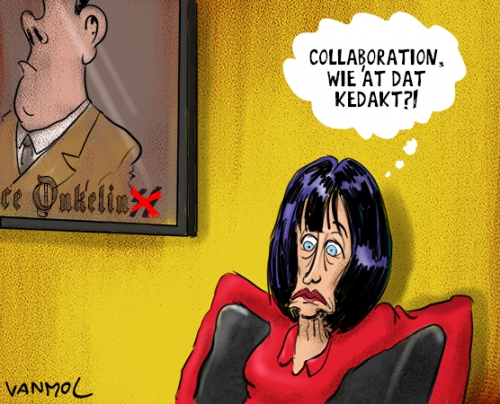
Uit: http://www.doorbraak.be
00:05 Publié dans art, Belgicana | Lien permanent | Commentaires (0) | Tags : caricatures, cartoons, belgicana, flandre, belgique |  |
|  del.icio.us |
del.icio.us |  |
|  Digg |
Digg | ![]() Facebook
Facebook
00:05 Publié dans Actualité, Géopolitique | Lien permanent | Commentaires (0) | Tags : états-unis, arabie saoudite, géopolitique, actualité, politique internationale |  |
|  del.icio.us |
del.icio.us |  |
|  Digg |
Digg | ![]() Facebook
Facebook
par Thomas Ferrier
Ex: http://thomasferrier.hautetfort.com
 En l’absence de résultats définitifs à cette heure, le Parti Progressiste Serbe (SNS) d’Aleksandar Vucic aurait obtenu 49% des voix et 161 sièges, lui donnant ainsi une large majorité, même s’il n’a pas réussi à dépasser la barre des 50% des suffrages. Il bénéficierait en effet de l’exclusion de nombreuses formations arrivées très légèrement en dessous des 5% permettant d’avoir des élus, sauf cas spécifique des listes représentant les minorités.
En l’absence de résultats définitifs à cette heure, le Parti Progressiste Serbe (SNS) d’Aleksandar Vucic aurait obtenu 49% des voix et 161 sièges, lui donnant ainsi une large majorité, même s’il n’a pas réussi à dépasser la barre des 50% des suffrages. Il bénéficierait en effet de l’exclusion de nombreuses formations arrivées très légèrement en dessous des 5% permettant d’avoir des élus, sauf cas spécifique des listes représentant les minorités.
Derrière lui, l’allié indispensable de la coalition sortante, le Parti Socialiste de Serbie (SPS), est loin derrière avec 12.1% des voix et 39 sièges. Désormais, le SNS n’aura plus besoin de lui pour gouverner. C’est aussi une véritable renaissance pour le Parti Radical Serbe de Vojislav Seselj, revenu en politique après avoir été acquitté au TPI de La Haye. Il obtient 7.9% des voix et 25 sièges. Ce succès se fait au détriment de l’autre formation nationaliste, le Dveri, qui n’aurait obtenu que 4.91% des voix, ratant de peu l’élection de députés, sous réserve de confirmation de ces résultats. Le SRS, qui avait été exclu en 2014 du parlement, y retrouve sa place pour y représenter le courant eurosceptique et nationaliste.
Le Parti Démocrate (DS), parti de centre-droit dirigé par Bojan Pajtic, avec seulement 6.1% des voix et 20 députés, est largement marginalisé. La liste « Tadic » qui se présentait également au nom du Parti Social-Démocrate, quant à elle, n’obtient que 4.97% des voix, et est elle aussi exclue du parlement, tout comme la liste de centre-gauche Dosta je Bilo (« C’est assez ! »), avec 4.94% des voix. C’est donc trois formations politiques qui échoueraient de très peu à passer cette barre fatidique. Enfin, le parti représentant les Hongrois de Voïvodine (VMS) aurait obtenu 1.47% des voix et en conséquence 4 sièges.
Le SNS de Vucic disposerait donc de 65% des députés au parlement national sur les 250 députés élus en tout. C’est une majorité très confortable. Les résultats définitifs permettront d’affiner cette analyse lorsqu’ils seront connus.
Thomas FERRIER (Le Parti des Européens)
00:05 Publié dans Actualité, Affaires européennes, Politique | Lien permanent | Commentaires (0) | Tags : serbie, balkans, ex-yougoslavie, europe, affaires européennes, élections serbes, politique |  |
|  del.icio.us |
del.icio.us |  |
|  Digg |
Digg | ![]() Facebook
Facebook

La RTS, comme de nombreuses stations de télévisions, mais plus que d’autres, me semble-t-il, a honoré le chanteur « Prince ». Avec tant d’enthousiasme qu’elle n’a pas économisé les hyperboles. Selon elle, ce chanteur a été « génial, flamboyant, révolutionnaire ». Un Che Guevara de la musique ! Ne s’arrêtant pas en aussi bon chemin, elle a enfoncé le clou. Prince a été un « génie de la musique, un démiurge génial, un musicien hors pair, hors normes, hors système ». Changeant légèrement de registre, notre bien-aimée télévision nationale a parlé, en évoquant ce chanteur, d’un « homme imprévisible, entouré d’une aura de mystère, androgyne, ambitieux, mais aussi révolté ». Assommé sous une telle masse de superlatifs, le téléspectateur, sur le point de rendre grâce, demandait pitié, mais la RTS ne l’entendait pas de cette oreille. Comme dans une charge de Walkyries, la présentatrice nous a encore annoncé que le président Obama a déclaré que personne, plus que Prince, n’avait eu un « esprit plus intrépide, plus fort, plus créatif ».
Bon, me disais-je, la RTS ne fait que répercuter les nouvelles des agences de presse. On peut donc lui pardonner ce dérapage dans l’hyperbole. Mais non ! Un journaliste de notre télévision nationale et donc payé par nous via Billag, vint souligner la stature universelle de Prince, expliquant qu’il était l’une des personnalités les « plus fascinantes des trente dernières années », que sa mort a provoqué une « onde de choc planétaire » et que les hommages sont « unanimes ». Pour encore mieux souligner la dimension cosmique de ce chanteur, la RTS est allée interviewer un organisateur du festival de Montreux. Il nous a confié sa stupéfaction de voir Prince aller vers le public et discuter avec lui. Quelle émotion ! Quelle humilité ! Comme un roi s’habillant en mendiant pour être plus proche du peuple.
Moi, je regardais cette émission la queue entre les jambes et les oreilles couchées. C’est que Prince, je ne connaissais pas. Ne suis-je pas ringard, largué, un « has been », me disais-je ? Et puis, au bout d’un moment, je me suis souvenu. Je l’avais vu, Prince, il y a une vingtaine d’années et l’avais trouvé si répugnant que j’avais oublié ce pur produit de ce qu’il y a de pire dans la culture américaine : costume de mauvais goût, sexualité pathétique et pornographique, regard faussement diabolique.
Grâce à notre télévision, tout m’est donc revenu à l’esprit. Elle ressuscite l’insignifiance, illumine les égouts états-uniens et nous fait croire à la dimension planétaire d’un clown creux et dégoûtant. Notre télévision s’est ainsi globalisée pour mieux promouvoir l’insignifiance. Avec notre argent !
Jan Marejko, 24.4.2016
00:05 Publié dans Actualité, Philosophie | Lien permanent | Commentaires (0) | Tags : actualité, philosophie, sous-culture américaine |  |
|  del.icio.us |
del.icio.us |  |
|  Digg |
Digg | ![]() Facebook
Facebook
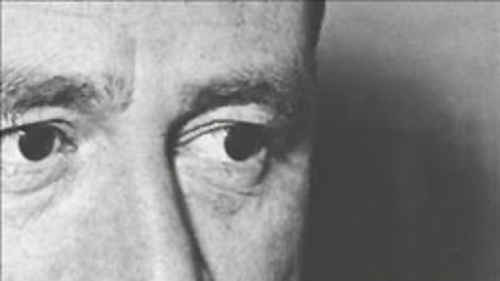
Every now and then on Twitter I type in the name “Carl Schmitt” and see what’s up with the social media discussion on the German jurist. Invariably, there are new book releases and papers out; there are upcoming conferences; of course quotes from the great man; and even some humour. With every ying there’s a yang, however, and Schmitt does not get a ‘free ride’ on the Twitter-sphere. Of course, Schmitt did take a walk on the dark side and a Twitter search will invariably reveal some unpleasantries directed in Schmitt’s direction or even in the direction of his supporters. There not only are the to-be-expected spurts of invective: some people, trying to make sense of the increasing securitization of the globe and the seemingly 24/7 merry-go-round (if ‘merry’ is the appropriate word) news coverage of the War on Terror, accuse Schmitt of providing the intellectual armoury for the current trajectory the world hurtles on.
Because of his image, Schmitt is one of the fall-guys for some of those deeply unhappy with the War on Terror. As students of politics are aware of, Schmitt has a reputation for exalting conflict and sacrificing diversity for the sake of fashioning a coherent national narrative. He also has a reputation for favouring authority and order and thus for preferring authoritarianism to a messy pluralism. And above all, Schmitt is known as someone for whom law was a secondary concern and for whom there was always a higher purpose that could be found above legalism.
When one then looks around and observes the changes that have occurred in Western countries over the last 15 years – bearing in mind that these changes succeeded a period of intense optimism (thus leaving a sour taste in the mouth) – it then is a small step to draw a genealogy of increasing erosion of civil liberties and indicting Schmitt as the founding father of this genealogy.
What is remarkable about the popularly held views about Schmitt is that they are broadly correct factually, but tell us next to nothing about Schmitt’s core values and beliefs and thus are of little use in trying to decipher how Schmitt would have viewed the War on Terror. It’s true that Schmitt wasn’t shy of conflict, supported the German President to the extent of trying to clothe him in the robes of Caesarist dictatorship, that he persistently advocated a solid national identity (although he stopped far short of the racial propaganda of the National Socialists) and that he often chided parliamentarians and liberals for being so officious in their adherence to written law.
Yet Schmitt was really ‘not about’ existential conflict or brutal repression per se. His primary concern was with the substance, or lack thereof, of human existence. We can understand Schmitt’s general thinking on matters like law and authority far better if we concentrate on the purpose of his meditations on such matters, rather than the meditations themselves.
In books like Roman Catholicism and Political Form Schmitt demonstrated that Europe, in spite of all its advances in economics and the sciences, had lost the transcendental element which corporations like the Church still possessed. It was therefore mired in nihilism and radical negation. This view became more evident by the late 1920s in his lecture The Age of Neutralizations and Depoliticisations where he contrasted the vitality of the Soviets with the lethargy that had beset Western Man. Schmitt’s concern for the integrity of human existence was picked up quite astutely by Leo Strauss in his famous commentary on The Concept of the Political. It also emerges at a later date when he wrote about international law and relations. Here he questioned the validity of allowing non-European nations enter a modified public order that had been designed for those of a European outlook: how could the Japanese and Turks internalize a culture that was alien to them and how could they then have that necessary ‘love’ for it?
As an antithesis to the substantive nature of bodies like the Church or the invigorating effect of national loyalty, Schmitt cited the modern tendency to neutralize all inherently human problems by either plunging into endless compromises and discussion or (and this is most relevant to the War on Terror) evoking the concept of humanity. This facile humanity then called out for apolitical solutions to material problems, as opposed to political expressions of the human condition. Schmitt derided the common tendency of the Soviets and Americans to seek an electrification of the earth and more generally was horrified at the thought of globalisation, which for him was manifested in finding technical solutions to problems, solutions and problems that all humans would find uncontroversial. Schmitt’s concerns resided in his conviction that human life must have substance, there must be things worth dying for if we are to have things worth living for, hating ‘others’ is part of loving one’s own kith and kin, having a solid purpose requires exacting moral decisions because that is the essence of a set ‘purpose.’

It was inevitable for Schmitt, if any of these things were to be instantiated in human existence, that peoples would divide into parties and factions and thus conflict would be an ever-present possibility. There could be no world of humanity for Schmitt.
So, now to the War on Terror. Now, I am know there are those who treat the War on Terror as a crusade against Islam, who view it as a way to revive an sleeping Western consciousness and who thus may be existing in a kind of Schmittian world-view. Generally, however, the War on Terror is commonly understood and promoted as merely a technical exercise. It is a conflict that has the ‘good guys’ of whatever religion or race on the side of shared human goals such as democracy, freedom and progress fighting the rest, the in-humane. If we take the Iraq war, for example, the US did not seek to colonize Iraq (at least not officially) but they did seek to replace, what was seen at the time as, a regime that promoted terror with one that was an Arab replica of an American state. Even Donald Trump, who has acquired a reputation as a Muslim-baiter, has spoken of his friends in Muslim countries. Generally US policy is towards supporting countries like Malaysia, Turkey, and Saudi Arabia, and even offering some support for a future Palestinian state, but against compromise with countries like Iran or Syria, except where circumstances dictate otherwise.
If we offer a fair account of the War on Terror, we can see that it’s true genealogy is not that of the Crusades or the epoch of hegemonic Western colonialism, but that of the post-WWI drive to end all wars, the League of Nations attempt to bring countries of disparate origins and dispositions together, and the policy of fashioning a world of technical excellence and commercial activity.
Yet another feature of the War which would have made Schmitt baulk is the unrealistic aim of ending all ‘terror’ in the world. Terror is a human emotion; and we get terrified as a matter of course. The idea that terror can be vanquished, as opposed to a political foe, would have seemed to Schmitt as fundamentally dishonest. Not only that, but terror is something wholly subjective as a legal condition. By contrast, a war between two nation-states is legally describable. Schmitt, I am sure, would have asked; who, in concrete terms, is the enemy, and what, in concrete terms, is the aim of any belligerent disposition.
A War on Terror really represents all that Schmitt saw as being wrong with the world. Normal human antipathy is ignored, humanity is evoked as a political constituency, policies which are carried out don’t cement and solidify a national identity but facilitate a global consciousness (one which Schmitt was adamant couldn’t exist), the aims are too vague, the goal of perpetual safety chimeric. It’s understandable why the Twitter-sphere would promote Schmitt as being a War on Terror ‘hawk’ – i.e. based on his marquee statements and famous concepts – but while he was no ‘dove’ he was not someone who saw the human condition as akin to a machine that merely needed technical nous applied to it. A War on Terror, like a War of Poverty, presupposes an apolitical humanity who realise themselves through commerce and technique and that, for Schmitt, would have been unacceptable.
I have written three books on politics. The latest, The Terrible Beauty of Dictatorship, can be viewed here.
00:05 Publié dans Révolution conservatrice, Théorie politique | Lien permanent | Commentaires (0) | Tags : carl schmitt, révolution conservatrice, guerre contre la terreur, guerre contre le terrorisme, philosophie politique, théorie politique, politologie, terrorisme, sciences politiques |  |
|  del.icio.us |
del.icio.us |  |
|  Digg |
Digg | ![]() Facebook
Facebook
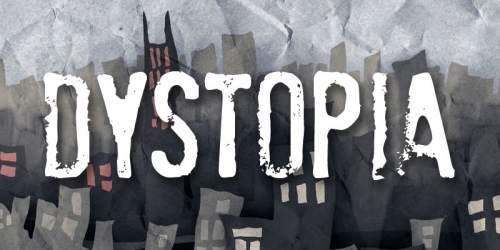
Occasionally, we listen and learn, and then society improves. But other times, we don’t. And while the present day seems quite ordinary to us, the reality is that our modern era was once a horrible, terrifying nightmare that sci-fi writers desperately tried to stop.

When The Twilight Zone first aired on TV, cosmetic surgery barely existed. It was only used for the absolute worst medical cases. The idea of someone getting their face restructured just for the sake of looking pretty still seemed outlandish to most people.
But not to the writers of The Twilight Zone. As it turns out, they knew exactly what was coming.
In the episode “Number 12 Looks Just Like You,” we’re taken to a future where every person is expected to go through a “transformation” at age 18. This surgery completely changes their face to resemble one of a small number of gorgeous models. It’s such a big change that teenagers are appointed therapists to deal with the stress of waiting to become beautiful.
When they wrote it, the Twilight Zone writers were just worried about girls using too much make-up. But in South Korea, the world is more like “Number 12 Looks Just Like You” than even the writers could have predicted.
A shocking one in three girls in South Korea have had plastic surgery, and just like in the story, the results are drastic. So much so that plastic surgeons now have to hand out certificates proving that the attractive girl in question is really the same drab-looking person on her ID.
Just like in the story, plastic surgery is a common graduation gift for girls after high school. It really seems like they’re living in the Twilight Zone. Girls suffering through high school, unable to live up to the unreal standards that adults have created, and then conforming to one of a few faces as soon as they turn 18.

When Ray Bradbury wrote his short story, “The Veldt,” televisions were just coming into homes for the first time, and these inventions changed everything, especially parenting. It’s kind of hard to imagine how parents did it before Dora the Explorer was around to help out. Raising a child was a much different thing back in the day . . . and Bradbury was terrified about how it might change.
In “The Veldt,” Bradbury writes about a family that uses a “nursery”—basically, an interactive TV—to keep their kids entertained. The children end up being raised more by the nursery than by the parents, and that’s when the kids start going savage. It gets so bad that, when the worried parents finally shut the nursery down, the kids murder them.
Perhaps Bradbury’s story sounds kind of far-fetched. How could TV make a kid murder his parents? Well, the thing is, it actually happened. The exact events of the story played out in real life.
A 14-year-old boy named Noah Crooks was obsessed with video games, and just like in the story, his mother began to worry about how it was affecting him. His grades were going down, and he was becoming more and more prone to violence. And just like in the story, his mother decided to shut the video games down.
Noah didn’t take this well. He erupted in a fit of rage and murdered his own mother.
Sure, Noah isn’t exactly normal, but neither are the kids in the story. They’re portrayed as an extreme symptom of a larger problem. Ray Bradbury wasn’t saying everyone would murder their parents. Instead, he argued that children would lose enough parental guidance that it could possibly happen. And maybe Bradbury was right. Maybe TV and video games have really messed us up, but we’re just so used to them that we don’t even realize it.

When it came out in 1909, “The Machine Stops” seemed like a bit of an overreaction. The telephone had just started to enter into people’s homes, and E.M. Forster was already worried that society was somehow ruined. He imagined a ridiculous future where people would spend all their time indoors, sitting at machines, while sending short, pithy thoughts to thousands of “friends” they’d never met, and “liking” things as their main source of human interaction.
Sure, this probably sounded paranoid in 1909. After all, it was just a telephone. But today, our reality is almost exactly like the world in “The Machine Stops.” The story’s depiction of long-distance interactions is eerily similar to social media. The idea of having thousands of online friends you’ve never met is a terrifyingly dead-on prediction of Facebook. And the way people in the story send out short, one-sentence thoughts is basically an old-timey Twitter.
But it’s more than just the inventions, though. The whole culture Forster predicted in 1909 is just like ours. For example, Forster portrayed social media as a form of distraction. When the protagonist of the story starts to feel sadness for her son, she’s immediately pulled out of her thoughts by the ability to “like” things. And according to some people, that’s exactly what happens in real life. Some claim that social media really does distract us from our families and emotions by giving us hard-to-ignore jolts of stimulation.
There’s also our attitude toward the outdoors. In the story, going outside for pleasure is considered weird. Now, most people won’t say that out loud, but it does seem to be our view today. According to one study, only about 1 percent of Americans actually participate in nature-based activities.
The final message of the story is that our connection to nature and our families is what brings us happiness, not social media. Similarly, a study of college students showed that heavy Facebook users are more likely to be depressed, so maybe that message hits home for us, too.
For a story written in 1909, the overlaps are incredible. The only thing Forster got wrong was that he thought some robotic dictator would force us into this scenario. In reality, we were happy to do it ourselves.

When Isaac Asimov wrote “The Fun They Had,” he wasn’t really worried about any particular issue. Actually, he only wrote this story—a tale of kids learning on computers—as a favor for a friend. But what might’ve seemed inconsequential in Asimov’s time is quickly becoming a reality today.
The story tells about a future where children learn exclusively at home, on computers. When the computers break down, the kids find out that students used to learn in classrooms, and suddenly, they begin wondering about “the fun they had” in the past.
We aren’t quite at that point yet, but we’re getting there. When Asimov penned this tale, all education took place in classrooms, and barely anyone was homeschooled. Today, the rate of homeschooled kids has tripled to nearly two million in America alone.
Learning on computers is becoming a reality, too. As of 2011, 30 percent of all college students were learning via the Internet. But it’s not just limited to adults, though. Schools are already promoting online, computer-based teaching in nurseries. According to advocates, this will soon be the norm.
When you think of Asimov’s time period, this was a truly crazy prediction. In the 1950s, personal computers didn’t even exist, and the idea of giving up school must’ve seemed fairly far-fetched. But today, the technological innovations that Asimov wrote about are quickly becoming the way we learn.
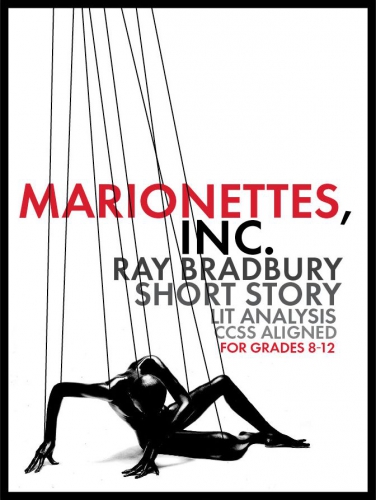
Ray Bradbury’s “Marionettes, Inc.” is a little silly.
In this short story, two men have such a hard time putting up with their wives’ affections that they buy look-alike robots to stand in for themselves at home. But the twist is that the women like the robots better than their husbands. And in the end, the main character is stuffed into a crate and permanently replaced by the robo-hubby.
On its face, this sounds pretty ridiculous. It’s not like we’re so unwilling to put a little work into our relationships that we’d replace our partners with dolls . . . are we?
Well, in Japan, that’s exactly what’s happening.
Japan is dealing with an epidemic of growing disinterest in sex. Currently, 61 percent of unmarried Japanese men have never dated anyone, and 45 percent of women between the ages of 16 and 24 say they have no interest in having sex whatsoever. So why did half of Japan lose interest in having relationships with other people? Because it’s too hard.
Experts have consistently blamed this phenomenon of so-called “herbivore” asexuals on people just giving up. Things are so serious that one economic analyst actually proposed a tax hike on sexually attractive people. He hopes this will give uglier men a chance when it comes to dating, thus increasing the national birthrate.
But while these “herbivores” say they have no interest in sex, that’s not exactly true. While they might not put in the effort necessary to attract human girls, they’re perfectly happy to start romantic relationships with artificial ones. These men spend their time playing with virtual girlfriends on computers, purchasing erotic figurines of cartoon characters, or dating “waifus”—pillows with pictures of girls on them.
This phenomenon isn’t just limited to Japan, either. America has “iDollators,” men who have given up on attracting human women. Instead, they’ve “married” realistic sex dolls, as seen in the video above.
There’s something about “Marionettes, Inc.” that feels like Bradbury just wrote it for a laugh. But weirdly enough, we’re suddenly living in a world where life-like dolls really are creeping into our bedrooms.

In 1964, Rod Serling wrote a Twilight Zone episode that ended with one its trademark twists. The episode focuses on Wallace V. Whipple, a man who fires the employees at his manufacturing company and replaces them with robots. In the episode’s ironic ending, Whipple ends up getting replaced by a robot himself.
Similar to many other Twilight Zone episodes, “The Brain Center at Whipple’s” actually predicted the future. First of all, while robot factories are completely a thing these days, you might not realize how space-age they are. We’re far past the point where we just have a few machines and computers to make the job easier. More and more, factories are increasingly operated by robots, just like Serling predicted.
Experts are predicting that, over the next 20 years, we are going to see about 50 percent of all jobs disappear. But we’re not just talking about factory jobs, and that’s what’s so spot-on about “The Brain Center at Whipple’s.” Just like Wallace V. Whipple, the managers who had us replaced are starting to be replaced by robots themselves.
A computer program has been created and tested that not only chooses employees, but it actually seems to make better hiring decisions than humans do. When the program was put in charge of picking who to hire, its top choices stayed on the staff for an average of 29 days longer than the other applicants. So for those you at Amazon who are losing jobs to delivery drones, take a little comfort. The robots are coming for your boss, too.

The world changed after America invented the atomic bomb. This terrifying weapon wreaked such destruction that it brought an end to World War II. It also gave us a world where America was a superpower, and nations carried enough weapons to destroy the planet, thus giving rise to the Cold War. And when that icy conflict ended, it left us in an era where the US patrols other countries, limiting their access to weapons of mass destruction in the name of peace.
That’s not a history lesson. That’s a summary of Robert Heinlein’s story “Solution Unsatisfactory,” written before the Manhattan Project even began.
Heinlein wrote this story before the US had entered World War II. The plot was inspired—according to Heinlein—by an editor asking him to write a story about “radioactive dust” being used as a weapon. But the weird thing about “Solution Unsatisfactory” isn’t that Heinlein got the atomic bomb right. (In fact, he thought it would be more like a biological weapon.) It’s that he predicted the next 60 years of history almost perfectly.
Like Heinlein guessed, the introduction of nuclear weaponry caused us to live in constant terror of imminent nuclear destruction. During the Cold War, children even watched “edutainment” videos on how to survive an apocalypse as part of a regular school curriculum. But Heinlein’s story goes even further. He warns of a future when America would play the part of world police.
In his story, America holds enough weapons to destroy the entire planet. It then uses them to create a “Peace Patrol” that forces everyone else to give up their militaries. It’s almost exactly what’s happening today, with America’s current efforts to keep countries like Iran from becoming nuclear powers.
Heinlein ends his story by warning that America probably won’t be able to keep up its role as international peace officer, and the world will probably destroy itself. That should be a pretty troubling prediction, given how much of the future Heinlein actually got right.
However, the only thing he didn’t predict is how complacent we’d become to this dystopian life. Heinlein ended his story by writing, “I can’t be happy in a world where any man, or group of men, has the power of death over you and me.” And really, whether we talk about it or not, that’s the world we live in right now. Only we’ve just learned to go on with it, to stop worrying and love the dystopia.
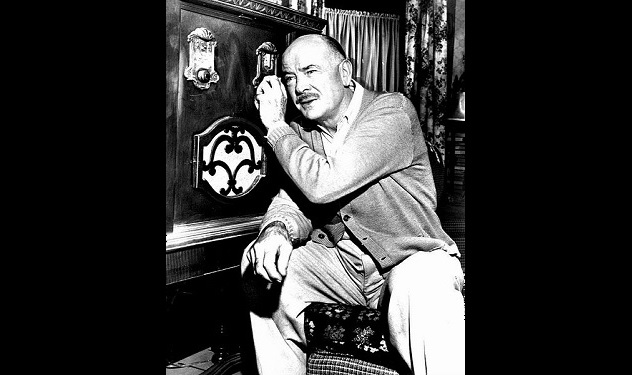
If you want proof that our culture has become obsessed with nostalgia, just log onto Buzzfeed. You don’t have to search hard to find an article with a title like “Only ’90s Kids Will Remember This.”
The Twilight Zone warned us about this problem, too. The 1961 episode “Static” tells the story of a man in his late 50s who finds an old radio that only plays programs from his childhood. He becomes obsessed with the radio, and he won’t do anything but listen to it. Soon, his friends become worried about his mental health, and they take his radio away.
Does that sound familiar? The radio is basically Nickelodeon’s TV station that only plays ‘90s shows, or any other “retro TV” station or website devoted to pop culture, for that matter. Basically, every aspect of our entertainment is obsessed with the past.
Take movies, for example. Josh Kurp of Uproxx looked at the top 10 grossing movies for each year since 1990. He found that, out of every hit so far this decade, there are only six that aren’t remakes or sequels. It seems we’re perpetually revisiting our childhood, just like the man by the radio. And this might be more of an issue than we realize.
Originally, “nostalgia” was a mental illness, not something we were supposed to take pride in. The word came about to describe a crippling longing for the past, which in turn leads to depression. These days, some worry that we’re getting stuck in a rut because of our focus on the past, both artistically and culturally. Perhaps, like the man in the Twilight Zone episode, we’re all sitting by a machine, playing back our past memories . . . and perhaps that’s a problem.

Fahrenheit 451 is about more than just burning books. It’s about a culture that willingly gives up on its intellectualism and social connections, all thanks to TV. Sure, nobody is setting books on fire right now, but some other parts of the novel are eerily similar to our reality today.
In the book, the hero’s wife, Mildred, spends most of her time watching a “parlor family” on TV as they play out their ordinary lives. She seems more emotionally invested in these characters than she is in her own family. Mildred insists that she has an obligation to keep up with what they’re doing, and she ignores her husband to focus on the show, even putting “audible seashells” in her ears to shut off the world around her.
It’s eerily close to modern reality TV shows, especially ones like the Kardashians. People today have a weirdly deep level of knowledge about that family. If you visit the right websites, you can find daily updates on everything the Kardashians are doing. Some people have, at least in a half-kidding tone, even admitted to knowing more about these socialites than their own families.
Bradbury’s “audible seashells” are real, too. Only today, they’re in the form of earphones. That’s more than just a technological prediction, though. These buds have changed society, just as Bradbury assumed they would.
Headphones have been credited with changing the world of art by removing its social requirements. Where music was once a public art, people now have their own tastes because they listen to their iPods alone. And people often put on headphones as a way of saying, “Don’t bother me. I want to be alone.” So while we aren’t burning books yet, it’s probably because we’d have to gather with other people first.

John Brunner’s 1972 book, The Sheep Look Up, warns of a world ravaged by pollution. The people in the story use water filters to drink, and only the poorest risk drinking tap water. They wear masks when they go outside in order to survive the smog. And chemicals have absolutely devastated both water and land.
If you live in China, this might just sound like a news report.
Modern China has turned into the exact place Brunner described. People in China exclusively drink purchased water because it’s unsafe to drink from the tap. Even the poor avoid tap water if possible, since major health problems can occur if you drink anything that comes out of a Chinese sink.
And, yes, people wear masks outside. But things have gone even further than most people would expect. Air pollution in Beijing has recently reached what’s being called “doomsday levels” or the “airpocalypse.” Pollution there is 18 times higher than the safe level, making it an absolute necessity to don a mask.
One of the most extreme cases of pollution can be found in the waters of Qingdao. Due to chemicals, the water has been overrun with so much green algae that it completely covers the surface. It’s an absolute catastrophe with apocalyptic implications, but for the people in China, it’s just everyday life. Because that’s all you can do when you live in a dystopia. Just carry on.
Mark Oliver is a writer and a teacher.
00:05 Publié dans Cinéma, Film, Littérature | Lien permanent | Commentaires (0) | Tags : cinéma, film, dystopie, littérature, lettres, philosophie, contre-utopie |  |
|  del.icio.us |
del.icio.us |  |
|  Digg |
Digg | ![]() Facebook
Facebook